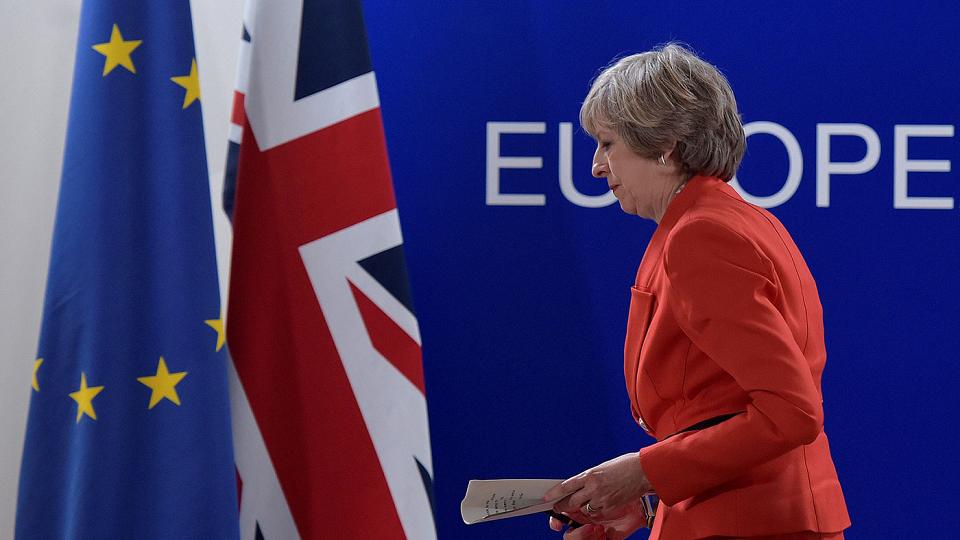November 8th 2016 is being hailed by some as the greatest day in US political history. The day the people took back power from the “political establishment”. For others, it represents the sadness, disappointment and despair that came with the realisation that an arrogant, divisive and abusive individual was able to rally a majority of the population of the United States, the “Land of the Free”, around a doctrine of hate and discrimination.
The controversial election of Donald Trump to the American presidency has been for the United States what Brexit was for Britain – one of the most controversial moments in national political history, the consequences of which are potentially explosive but impossible to accurately predict. The shock many Americans are feeling at the result mirrors that of many Brits on 24th June. Shock at the discovery of a disaffected and neglected majority, which has adopted narratives of racism and colonial supremacy in order to challenge stagnating political systems that no longer represent their interests.
We are shocked, horrified in fact, that people can legitimise the behaviours and rhetoric of the likes of Donald Trump and Nigel Farage, but we should not be surprised.
In the last hundred years, the world around us has changed beyond recognition. Advances in technology and communications have resulted in unprecedented levels of globalisation. People are moving between countries like never before, giving rise to vibrant, multicultural societies and the constant exchange of ideas and skills. But while many have adapted and thrived, others have not.
Globalisation has also brought negative consequences, as cultures clash and communities are forced to compete for political influence and resources. Conflicts thousands of miles away that once existed only on television screens and in newspaper articles are leaving their impact on our doorstep, as people flee war-torn countries in search of better lives and opportunities abroad. Global issues such as climate change and the refugee crisis are unfolding right in front of our eyes and are impossible to ignore.
Most importantly, our political systems have not adapted to this new world. The core concepts upon which they were built – including the idea of the nation-state, secure borders, and large-scale, conventional warfare – hark back to the days of empire and colonialism, relative economic stability, and diplomatic superiority. But this is no longer a reality, and political institutions are rendered incapable of facing the challenges of the modern world.
This is inevitably taking its toll, and people in the West who face economic hardship and feel alienated by the political “establishment” have been left out in the cold with nowhere to turn but to historic ideals of nationalist supremacy and legacies of past “greatness”. Such ideals are inherently biased towards white men, and their increasing articulation pushes alienated minority communities to look inwards for comfort and security, thus further entrenching intragroup tensions and societal divisions.

This has come to be known as the “globalisation backlash”. This is not a new phenomenon and academics and political observers have been discussing the concept for years. Yet very few people in positions of power are attempting to bridge the gap between the circles in which these discussions are taking place and the ordinary people on the front lines of this backlash. The impact of this issue on Western politics and society is enormous, and yet it is not being taken seriously by those in power.
Politicians have no incentive to address the fact that the political systems within which they work are fundamentally flawed, as this would undermine their own positions and livelihoods. The wealthiest in our societies and the corporations they control certainly have no interest in massive political upheaval, particularly when the outcome would likely not be in their favour. The associated problems therefore continue to grow.
This creates an opportunity; Enter Donald Trump, Nigel Farage, Marine Le Pen and the rest of the far right, who exploit the symptoms of this world-changing phenomenon without any intention of addressing its roots. These shameless entrepreneurs capitalise on the discontent and alienation felt by so many, using national supremacist, racist rhetoric to paint immigrants and minority groups as the problem, meanwhile highlighting the ineffectiveness of “out-of-touch”, “establishment” politicians in order to present themselves as the saviours of the masses.
These individuals are conning the disenfranchised and the ignorant into believing that their toxic ideologies hold the key to a better future. In reality, they offer nothing more than empty promises and a place for them to direct their anger. They have repeatedly proven themselves incapable of offering feasible solutions to very real global political problems, all the while using radical statements to distract their supporters from their lack of vision and strategy.
Their hateful, divisive vitriol will only make the future of our world increasingly filled with conflict and thus all the more difficult to navigate, as societies are divided along racial, religious and political lines. While their supporters may feel temporarily satisfied that they are dismantling a supposedly self-serving political elite, in the long-term they will be disappointed when the emptiness of their champions’ promises becomes apparent. The only real winners are Trump, Farage, Le Pen and their comrades who stand to gain personally and politically in the short-term.
In this sense, Trump’s election victory and Brexit are the same. In both cases, deep, systemic political problems have allowed nationalist entrepreneurs to present themselves as the anti-establishment alternative for working people. In both cases, political entrepreneurs have merely antagonised the symptoms of these problems, harking back to the good old days of national supremacy without any hint of a realistic plan to achieve change. In both cases, the long-term political outcomes are equally uncertain. Even the most esteemed economists and political observers disagree over the long-term impact of Brexit, while Donald Trump has proven unpredictable at the best of times and erratic and impulsive at the worst.

The effects on society, however, are much easier to predict – in part because they are already unfolding. The increasing influence of figures like Trump encourages racist, xenophobic and sexist behaviour. In Britain, race and religious hate crimes have risen by 41% since the EU referendum, while an alleged child rapist and apparently proud misogynist will soon be President of the United States. This inevitably serves to legitimise discriminatory and abusive behaviours, setting our countries back by decades in terms of social equality and progress. It will be infinitely more difficult to respond to the global demographic changes that have inevitably occurred as a result of globalisation, and its backlash on the most vulnerable within our societies will worsen.
The above has painted a rather bleak picture of our future, but that is not the intention of this article. In fact, both Brexit and Trump’s victory have made me more optimistic than ever about the future.
Firstly, while both campaigns brought out the worst in many people – politicians and ordinary citizens alike – they also inspired an incredibly moving display of unity among others. People have shown extraordinary resilience in the face of divisive politics, continuing to advocate for values of equality, human rights and compassion for others. There are countless examples of how the last few months have inspired acts of unity and love among people determined not to accept the politics of hate and divisiveness. This force for good can be harnessed by those seeking genuine, long-term political and social progress.

Secondly, while the outcomes themselves might stand in the way of such progress, if there is one thing we should take away from them, it is that the power to shape the future is truly in the hands of the people. The problem in these cases is not democracy itself, but the lack of understanding and ignorance that can lead democracy astray. This is cause for optimism because it is something we all have the power the change. We all have the ability – particularly in the modern era of technology – to communicate, to educate, and to encourage people to question their beliefs and values. We must use this power to bring about a lasting, meaningful conversation about the ways in which the world is changing. Only then will we be able to redirect this dangerous trajectory of ignorance, hate, and division.
There is light at the end of this particularly dark tunnel, but we have to get up and chase it.





